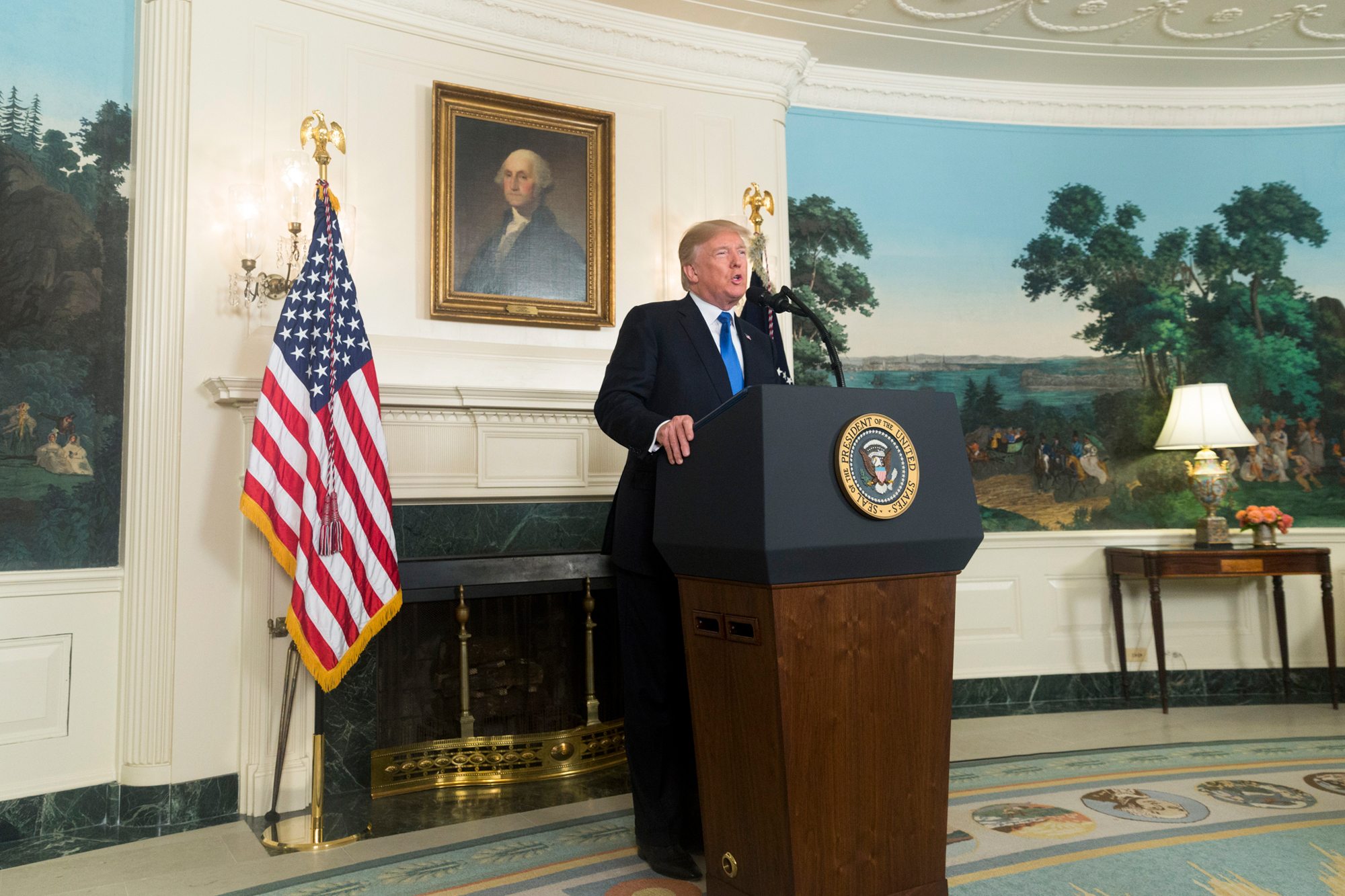Mueller Report: Not Enough Evidence to Prosecute Trump, Campaign

The smarter way to stay on top of broadcasting and cable industry. Sign up below
You are now subscribed
Your newsletter sign-up was successful
The Mueller report is out and it is clear that it does not exonerate President Donald Trump of obstruction of justice, instead punting on that "traditional prosecutorial judgment," which was then made by Attorney General Bill Barr and Deputy Attorney General Rod Rosenstein.
That is the report of special counsel Robert Mueller on Russian election meddling in the 2016 election and whether the Trump campaign was involved.
"[I]f we had confidence after a thorough investigation of the facts that the President clearly did not commit obstruction of justice, we would so state," the report's conclusion said. They didn't so state, saying that "based on the facts and the applicable legal standard, we are unable to reach that judgment." But Barr and Rosenstein did, concluding that the President did not obstruct, partly because of their conclusion there was not evidence of corrupt intent.
That conclusion came despite the fact that, the report concluded, the President on June 17, 2017, had directed White House counsel Don McGahn to call the acting attorney general "and say the special counsel [Mueller] had conflicts of interest and must be removed." McGahn did not do so.
It also came despite the fact that when the president was told Mueller had been appointed he told advisors it was the "end of his presidency."
The report detailed various examples of the President's actions and reaction to the investigation that were not necessarily acted on by his subordinates. That may be why the report said it could not conclude there was no criminal conduct.
CNN concluded that the report was saying Trump efforts to obstruct were thwarted because those subordinates refused to carry out his directives.
The smarter way to stay on top of broadcasting and cable industry. Sign up below
RELATED: Barr Repeats No Collusion, Conspiracy Conclusions
That conclusion was clearly a relief for the President, since the Mueller team also concluded that there would have been no reason for exempting the President from obstruction laws and that to do so would not "impermissibly burden" his performance, as the President's counsel had suggested.
On the conspiracy charge, the report found that "while the investigation identified numerous links between individuals with ties to the Russian government and individuals associated with the Trump Campaign, the evidence was not sufficient to support criminal charges" of conspiring to interfere in the 2016 election. There was also insufficient evidence that either the meeting with Russians at Trump Tower or the Wikileaks e-mail hack provided sufficient evidence of a campaign-finance violation.
Contributing editor John Eggerton has been an editor and/or writer on media regulation, legislation and policy for over four decades, including covering the FCC, FTC, Congress, the major media trade associations, and the federal courts. In addition to Multichannel News and Broadcasting + Cable, his work has appeared in Radio World, TV Technology, TV Fax, This Week in Consumer Electronics, Variety and the Encyclopedia Britannica.

